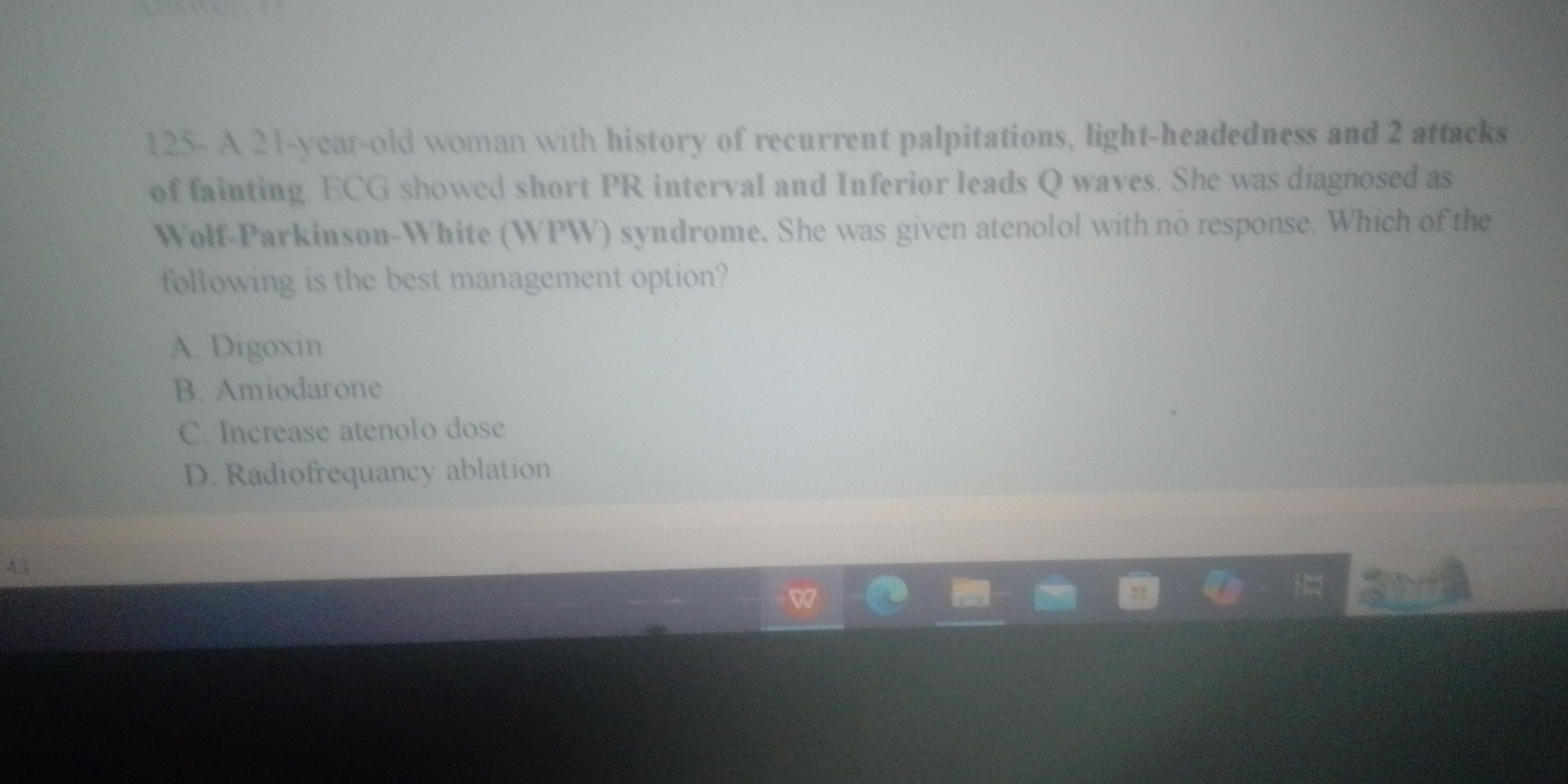A 21-year-old woman with a history of recurrent palpitations, light-headedness, and 2 attacks of fainting is diagnosed with Wolf-Parkinson-White (WPW) syndrome. After receiving ate... A 21-year-old woman with a history of recurrent palpitations, light-headedness, and 2 attacks of fainting is diagnosed with Wolf-Parkinson-White (WPW) syndrome. After receiving atenolol with no response, which of the following is the best management option? A. Digoxin B. Amiodarone C. Increase atenolol dose D. Radiofrequency ablation

Understand the Problem
The question presents a clinical scenario involving a 21-year-old woman diagnosed with Wolf-Parkinson-White syndrome and asks about the best management option following the ineffectiveness of atenolol. It requires knowledge of medical treatments related to this condition.
Answer
Radiofrequency ablation
The best management option for this patient is radiofrequency ablation.
Answer for screen readers
The best management option for this patient is radiofrequency ablation.
More Information
Radiofrequency ablation is a procedure used to destroy the abnormal electrical pathways in WPW syndrome. It is a definitive treatment option that can often cure the condition.
Tips
A common mistake is using medications like digoxin or amiodarone during WPW as they can worsen the arrhythmia.
Sources
- Wolff-Parkinson-White Syndrome (WPW) | Treatments - UW Health - patient.uwhealth.org
- 2024 ESC Guidelines for the management of ... - Oxford Academic - academic.oup.com
AI-generated content may contain errors. Please verify critical information